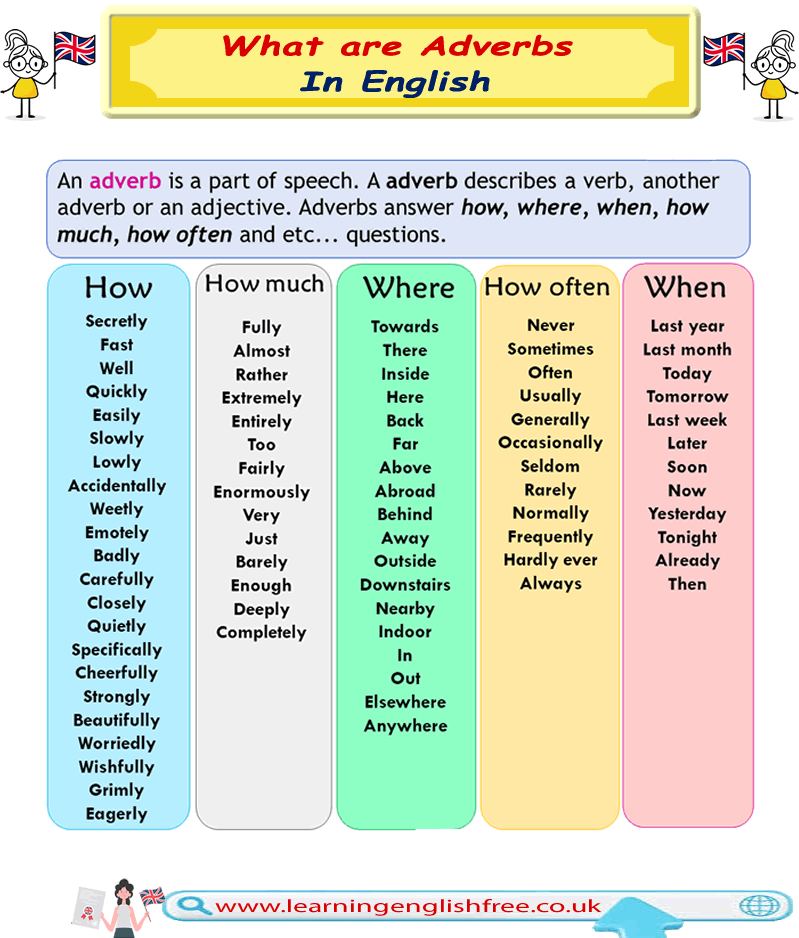
What are adverbs used for?
Adverbs are words in English that describe or change the meaning of verbs, adjectives, or other adverbs. They often tell us how, when, where, in what manner, or to what extent something is done. Here are some simple examples to help you understand:
-
How: Adverbs can describe how something is done. For example, in the sentence "She sings beautifully," the word "beautifully" is an adverb that tells us how she sings.
-
When: Adverbs can tell us when something happens. For instance, "He will come tomorrow." Here, "tomorrow" is an adverb that means us when he will come.
-
Where: Adverbs can indicate where something happens. For example, "The dog is outside." In this sentence, "outside" is an adverb telling us where the dog is.
-
In what manner: This describes how something is done. For example, "The baby slept soundly." The word "soundly" is an adverb that tells us about the manner of the baby's sleep.
-
To what extent: Adverbs can tell us the extent to which something is done. For example, in "She almost won the race," the adverb "almost" tells us to what extent she won the race.
Adverbs often, but not permanently, end in "-ly." For example, "quickly," "slowly," and "happily" are adverbs. However, many adverbs do not end in "-ly," like "very," "almost," and "too."
Remember, adverbs add more information to verbs, adjectives, and other adverbs, making our sentences more detailed and exciting.
How do you use adverbs in a sentence?
